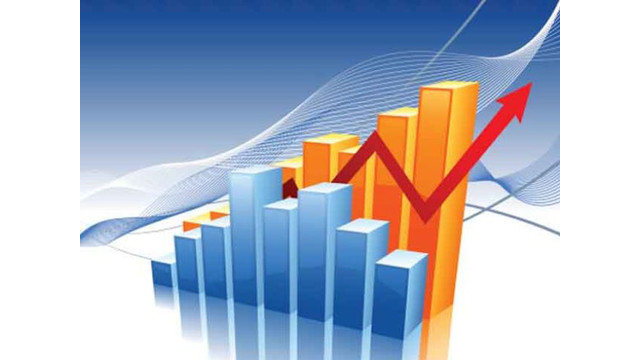The latest Global Economic Conditions Survey (GECS) from ACCA (the Association of Chartered Certified Accountants) and IMA (Institute of Management Accountants) found that global confidence in the fourth quarter of 2020 stalled and remains fragile at the start of 2021.
The GECS, the largest regular economic survey of more than 3,000 senior accountants and finance professionals from around the world, captured the true scale of the global recession caused by the response to the coronavirus pandemic, noting that global economic prospects have deteriorated since the survey was completed on December 8. The full report is available here or at https://www.imanet.org/insights-and-trends/global-economic-conditions-survey?ssopc=1.
The survey notes that the global economy contracted by around 4.5% in 2020, the biggest fall in global activity in several decades. Having recovered from lockdown-imposed weakness in the first half of the year, many economies again faced weakness as a second wave of COVID infections triggered renewed lockdowns. The survey envisions a steady recovery this year, but continued uncertainty limits the bounce in consumer and busines confidence, with pre-crisis output not being reached until mid-2022. The 2020 Q4 findings also reveal that:
- Global orders, employment and capital investment indices recorded a further modest improvement, but still point to activity well below the pre-crisis level in the fourth quarter of 2019.
- The “fear” indices—concern about customers and suppliers going out of business—edged lower in 2020 Q4 but remain elevated, clearly underlining the extreme uncertainty in the global economic outlook at the start of 2021.
- Inflation concerns remain negligible with concern about costs staying close to an all-time low.
- The confidence measure fell back in North America, having surged in the prior third quarter. By contrast, there was a big improvement in Middle East confidence, buoyed probably by continued recovery in oil prices.
- More than 50% of respondents in Asia Pacific, North America and South Asia expect sustainable recovery in the second half of this year.
“Last year was the worst for the global economy for several decades,” said Warner Johnston, Head of ACCA USA. “2021 will see recovery, but precisely when and how strong it will be is very uncertain. We anticipate a weak start, followed by a recovery gathering momentum through the second half. Much depends on the evolution of the COVID virus and variants relative to the progress of vaccination programs, and there is great uncertainty surrounding these developments.”
“The pandemic has forced millions into extreme poverty as emerging markets suffered recession for the first time in decades last year,” said Raef Lawson, Ph.D., CMA, CPA, IMA vice president of research and policy. “Policy responses to the pandemic have left the public finances of most economies in a perilous state with budget deficits in the range of 10% to 15% of GDP in many countries with debt to GDP ratios well over 100%.”
He added, “All this presents a big test for policy makers in terms of when to withdraw policy support and when policy should be tightened to rebuild public finances. Policy mistakes would risk derailing economic recovery.’
Michael Taylor, Chief Economist at ACCA, noted that since polling concluded in December, many countries have witnessed increased COVID-19 infection rates, prompting governments to re-impose restrictions, including national lockdowns. This means that global economic prospects early in 2021 have deteriorated since the Q4 survey. At the same time, there has been progress on the approval of vaccines, raising hopes of a permanent improvement in economic conditions later this year. However, unemployment rates will rise in many countries, potentially undermining consumer confidence and limiting the strength of a rebound.
North America/United States
In North America, confidence dropped in Q4, having jumped by the most on record in Q3. The orders and capital spending indices were both little changed in Q4 and were well below their pre-crisis levels of a year ago. The employment index recovered significantly in Q4, highlighting the continued relatively good jobs market rebound since the early weeks of the pandemic. Overall, the North America region GECS is consistent with continued recovery in early 2021.
Meanwhile, the U.S. economy suffered one of the smallest contractions among advanced economies last year – likely around 3.5%. A large fiscal package equivalent to around 10% of Gross Domestic Product and easier monetary policy, including cuts in interest rates and greatly increased quantitative easing, cushioned the economic downturn.
But toward the end of 2020, the economy was losing momentum and COVID infections were increasing rapidly. The report notes that the economy was likely to show modest expansion in the fourth quarter of 2020, but renewed weakness is possible in early 2021.
“There are significant risks to the outlook for the year ahead,” Lawson said. “Much depends on the evolution of the COVID virus and variants, rates of infection and the speed and effectiveness of vaccination programs. The central case is economic weakness early on in 2021 as the virus dominates, followed by recovery gathering momentum later in the year as vaccination takes effect. There are significant risks surrounding the timing of these developments. In addition, the emergence of vaccine- resistant variants of the COVID virus, unexpected adverse side effects from vaccination and low vaccine take up are also health-related risks that could cause deviations in the recovery path.”
Fieldwork for the 2020 Q4 survey took place between November 20 and December 8, 2020, and attracted 3086 responses from ACCA and IMA members, including over 300 CFOs.
Thanks for reading CPA Practice Advisor!
Subscribe Already registered? Log In
Need more information? Read the FAQs




